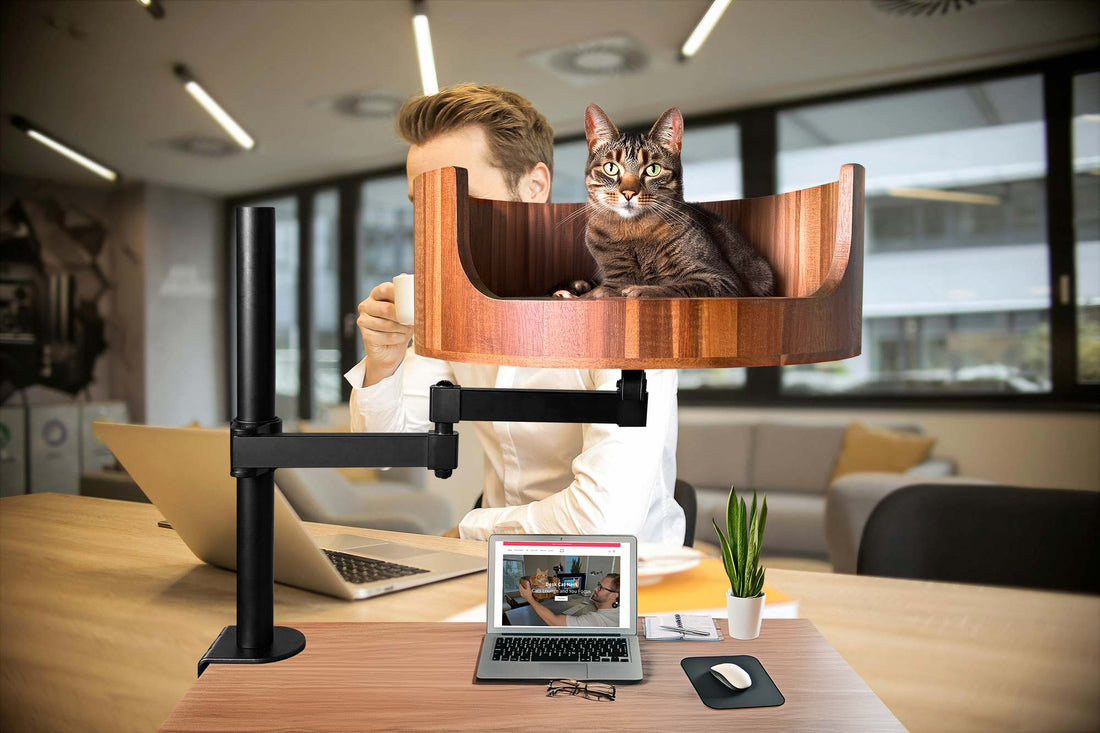
How Much Food Should I Feed My Cat: A Complete Guide
Share
Are you a cat parent wondering how much food to feed your feline friend? Look no further! In this comprehensive guide, we will break down everything you need to know about your cat's dietary needs. From portion sizes to meal frequencies, we will cover it all to ensure your kitty stays happy and healthy.
Understanding how much food to feed your cat is crucial for their overall well-being. Overfeeding can lead to obesity and health issues, while underfeeding can result in nutrient deficiencies. We will discuss the various factors that influence your cat's dietary requirements, such as age, weight, activity level, and overall health. Additionally, we will provide tips on how to monitor your cat's weight and adjust their food intake accordingly. By the end of this guide, you will have all the information you need to create a balanced and nutritious diet plan for your beloved feline companion. Let's dive in and ensure that your cat is getting the proper nourishment they need to thrive.
1. The quantity and quality of food you feed your cat directly impact their health and well-being.
2. Cats have different dietary needs based on factors like age, weight, and activity level.
3. Consult with your veterinarian to determine the appropriate portion size and type of food for your cat.
4. Pay attention to your cat's body condition and adjust their food intake accordingly.
5. Regular monitoring and adjustment of your cat's diet are essential for maintaining their optimal health and weight.
Factors to Consider When Determining How Much Food to Feed Your Cat
When determining how much food to feed your cat, there are several factors to consider. These include your cat's age, weight, activity level, and any underlying health conditions. Kittens will require more food than adult cats, and pregnant or nursing cats will also have higher caloric needs. Similarly, a sedentary cat will require less food than a playful and active cat. It's important to consult with your veterinarian to come up with a personalized feeding plan for your cat.
Reading Your Cat's Body Condition
One way to gauge whether you are feeding your cat the right amount is by reading their body condition. You should be able to feel your cat's ribs without them being too prominent or too hidden under a layer of fat. Additionally, your cat should have a defined waistline when viewed from above. If you notice that your cat is becoming overweight or underweight, you may need to adjust their food intake accordingly.
Choosing the Right Type of Food for Your Cat
When deciding how much food to feed your cat, you also need to consider the type of food you are offering. Commercial cat food comes in various forms, including dry kibble, wet food, and freeze-dried or dehydrated options. Each type of food has its own recommended feeding guidelines, so make sure to follow the instructions provided by the manufacturer. You should also take into account your cat's preferences and any dietary restrictions they may have.
Monitoring Your Cat's Weight and Adjusting as Needed
To ensure that you are feeding your cat the right amount of food, it's essential to monitor their weight regularly. If you notice that your cat is gaining or losing weight unintentionally, it may be a sign that you need to adjust their food intake. Consulting with your veterinarian can help you come up with a plan to address any weight fluctuations and ensure that your cat is getting the proper nutrition they need to stay healthy.
Desk Cat Nest FAQ
How much food should I feed my cat?
It is recommended to follow the feeding guidelines provided on the cat food packaging. Typically, cats need about 24-35 calories per pound of body weight per day. However, it is best to consult with your veterinarian to determine the appropriate amount of food for your specific cat.
How often should I feed my cat?
Most adult cats should be fed twice a day, once in the morning and once in the evening. Kittens may require more frequent feedings, up to 3-4 times a day. It is important to establish a consistent feeding schedule to help maintain your cat's health and weight.
Should I free feed my cat or stick to scheduled feedings?
Free feeding, or leaving food out for your cat to eat whenever they please, can lead to overeating and obesity. It is generally recommended to stick to scheduled feedings to better control your cat's portion sizes and ensure they are getting the right amount of food each day.
How do I know if my cat is overweight or underweight?
You can assess your cat's weight by feeling their ribs – you should be able to feel them easily without pressing too hard. You can also visually inspect your cat's body shape – they should have a slight waistline when viewed from above. If you are unsure, consult with your veterinarian for a professional evaluation.
In conclusion, Desk Cat Bed is a valuable choice for cat owners looking to monitor and control their feline's food intake. With its convenient design that includes built-in scales and portion control features, this innovative product will ensure that your cat is receiving the proper amount of food each day. By investing in a Desk Cat Bed, you can help prevent overfeeding or underfeeding and ensure that your furry friend maintains a healthy weight and lifestyle.



















































